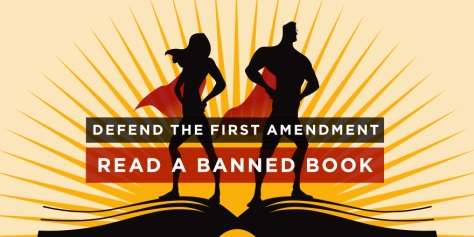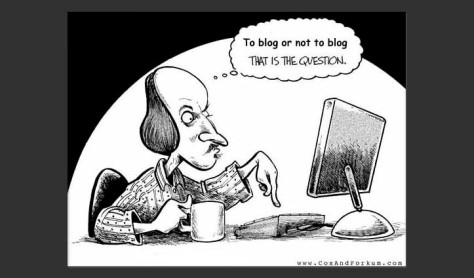
As librarians, we spend all day sharing information with our patrons. Therefore, it can be beneficial during this Banned Book Week to look back at some of the most challenged materials over a broader span of time than discussed in our previous post in this series about the materials challenged in 2015. I like to be very deliberate in seeking these books out to read, so I understand why there may be concerns, and so I am better prepared to discuss the content of a book in a challenge situation.
This is a list of the 100 most challenged books from 2000-2009, as complied by the ALA. Of course, a list like this can not be entirely accurate: many challenges go unreported, or may not rise to the level of a full challenge but still provide concerns for patrons. But it does give us some ideas about the types of materials that get challenged, and we can see some trends in consistently challenged books.
1. Harry Potter (series), by J.K. Rowling
2. Alice series, by Phyllis Reynolds Naylor
3. The Chocolate War, by Robert Cormier
4. And Tango Makes Three, by Justin Richardson/Peter Parnell
5. Of Mice and Men, by John Steinbeck
6. I Know Why the Caged Bird Sings, by Maya Angelou
7. Scary Stories (series), by Alvin Schwartz
8. His Dark Materials (series), by Philip Pullman
9. ttyl; ttfn; l8r g8r (series), by Lauren Myracle
10. The Perks of Being a Wallflower, by Stephen Chbosky
11. Fallen Angels, by Walter Dean Myers
12. It’s Perfectly Normal, by Robie Harris
13. Captain Underpants (series), by Dav Pilkey
14. The Adventures of Huckleberry Finn, by Mark Twain
15. The Bluest Eye, by Toni Morrison
16. Forever, by Judy Blume
17. The Color Purple, by Alice Walker
18. Go Ask Alice, by Anonymous
19. Catcher in the Rye, by J.D. Salinger
20. King and King, by Linda de Haan
And here is the ALA’s list of the 100 most challenged books from 1990-1999. I am copying in the top 20 from each list; and when you click on the links you can see all 100. You will see several books that are consistently on the list, and several authors who write in areas of sensitive material and appear regularly on these lists.
- Scary Stories (series), by Alvin Schwartz
- Daddy’s Roommate, by Michael Willhoite
- I Know Why the Caged Bird Sings, by Maya Angelou
- The Chocolate War, by Robert Cormier
- The Adventures of Huckleberry Finn, by Mark Twain
- Of Mice and Men, by John Steinbeck
- Forever, by Judy Blume
- Bridge to Terabithia, by Katherine Paterson
- Heather Has Two Mommies, by Leslea Newman
- The Catcher in the Rye, by J.D. Salinger
- The Giver, by Lois Lowry
- My Brother Sam is Dead, by James Lincoln Collier and Christopher Collier
- It’s Perfectly Normal, by Robie Harris
- Alice (series), by Phyllis Reynolds Naylor
- Goosebumps (series), by R.L. Stine
- A Day No Pigs Would Die, by Robert Newton Peck
- The Color Purple, by Alice Walker
- Sex, by Madonna
- Earth’s Children (series), by Jean M. Auel
- The Great Gilly Hopkins, by Katherine Paterson
Some of these books are not popular anymore, or too dated to be of interest to today’s school-aged readers. But some carry on as significant enough to continue reading. And many of the books in both lists appear there after some national publicity of challenges – which may have caused other challenges in other places to occur.
A troubling trend in book challenges, beyond just their existence, is the increased number of challenges over materials about diverse content from the ALA, or books written by authors of color. Read through that second link, which is a blog post by Malinda Lo – one of the creators of the blog Diversity in YA. She looks at a lot of perspectives on publication of authors of color and books with diverse content, complete with charts to make her points visual. Although the authors have ceased contributing new content, looking back through their archives gives some interesting insights into this issue. Censorship, or book banning, is not always an overt process; and we will explore that topic further in the fifth post in our series this week.
As with everything we do in libraries, there is a lot to consider and a lot to balance. We serve the needs of our communities with their diverse interests and needs; and we also serve the library profession. A strong collection development policy, with a lot of discussion in the library among staff and with the community about rationale for different collection items, will be the best way to ensure communication happens when conflict occurs. You can not stop conflict, but you can plan for it and be ready to address it in a professional way.


